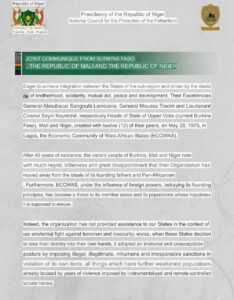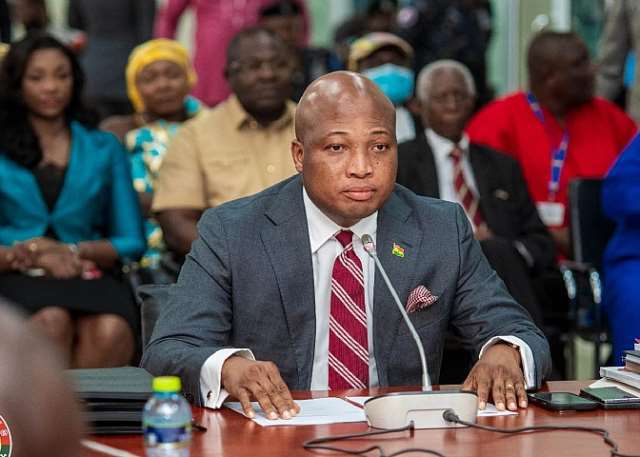
The fragmentation of the Economic Community of West African States (ECOWAS) is no longer a theoretical concern but a stark reality.
On January 29, 2025, despite a six-month extension offer from ECOWAS, the Alliance of Sahel States (AES)—Mali, Burkina Faso, and Niger—formally withdrew from the Community, marking the most significant crisis in West Africa’s regional integration since the founding of ECOWAS in 1975. This second major rupture, after Mauritania’s exit in 2000, deals a significant blow to African regional integration and cooperation architecture.
Mauritania left primarily to pursue cultural and economic alignment with the Maghreb. However, weaker levels of economic, political and social connections with the wider ECOWAS members also played a role. The AES departure reflects a complex web of security concerns, geopolitical realignments and institutional failures.
Despite the quarter-century gap, both exits share a common thread: dissatisfaction with ECOWAS’ capacity to address member-specific needs. However, the AES withdrawal poses more significant regional implications given these countries’ strategic position and collective emphasis on security cooperation to address the existential security threats facing them over economic integration.
The Sahel states’ exit from ECOWAS stems from a complex interplay of factors triggered by ECOWAS’ mishandling of the July 2023 Niger coup through swift, indiscriminate sanctions and military intervention threat—actions that revealed a disconnect between institutional responses and regional realities in the milieu of stalled governance reforms since 2015.
This crisis exposed deeper issues: ECOWAS’ ineffectiveness in addressing terrorism and insurgency in the Sahel, economic marginalisation concerns, particularly regarding the CFA franc, and sovereignty issues over perceived French and Western influence in ECOWAS decision-making. Russia’s growing regional influence has provided these countries with alternative partnership options, reducing their dependence on traditional Western alliances and arguably accelerating their exit plans.
The rift also exposed ECOWAS’ fundamental flaws: over-reliance on sanctions without adequate diplomatic engagement, ineffective handling of political transitions and security challenges, and poor communication with affected populations.
These missteps reveal an uncomfortable truth: the organisation’s traditional tools of influence—sanctions, isolation, and military threats—have become counterproductive, in a context that demands addressing legitimate issues and given that member states have alternative diplomatic and security options.
Furthermore, ECOWAS’ limited recognition of changing geopolitical dynamics in the Sahel and insufficient engagement with civic stakeholders has undermined its credibility and legitimacy.
The implications of the coming into effect of the exit of the AES on 19 January have major consequences not just for the countries and ECOWAS but for the wider African regional integration process. For AES states, the withdrawal affects cross-border trade, financial transactions, and the movement of people, posing significant challenges for its members.
They face potential economic isolation and increased maritime access costs as landlocked nations. Additionally, they risk reduced foreign direct investment due to perceived instability and limited market access. The announcements that they have made on establishing their own regional confederation and a 5-000-strong force suggest that these countries need to invest in building from scratch alternative frameworks for regional cooperation, particularly in areas previously covered by ECOWAS protocols—trade facilitation and security cooperation.
The withdrawal also carries significant implications for ECOWAS coastal states. The immediate impact includes the potential disruption of established trade routes and economic zones. Port cities and transit trade could experience an economic downturn.
In contrast, cross-border communities and traditional trade networks may face challenges, given that Mauritania and Morocco are enhancing Sahel-Saharan integration and facilitating AES access to the Atlantic Ocean. From a security perspective as well, these states now face increased security vulnerabilities due to weakened regional cooperation mechanisms. The situation could also exacerbate illegal migration and trafficking, creating new security challenges.
Institutionally, it has also dented ECOWAS’ institutional credibility and regional integration vision, which has guided West Africa for nearly half a century. It also represents a loss of its collective bargaining power. This may weaken its position within the AU and broadly in international negotiations. Beyond weakening its position as a model for African regional integration and affecting international partnerships, the organisation faces reduced financial contributions and diminished influence.
The ECOWAS split poses profound implications for the African Union’s (AU) broader integration agenda, challenging current realities and future assumptions. As a precedent for regional bloc fragmentation, it calls into question the AU’s fundamental principle of regional integration as a pathway to continental unity.
Furthermore, it presents significant risks to the African Peace and Security Architecture (APSA), in which ECOWAS is a crucial pillar. The emergence of alternative groupings like the AES signals a shift towards fluid, issue-based regional cooperation rather than strictly geographical arrangements.
This suggests security concerns take precedence over economic considerations in shaping regional alignments. This development could impact the implementation of the African Continental Free Trade Area (AfCFTA) and influence other sub-regional mechanisms, critically questioning the viability of regional economic communities as building blocks for continental unity.
The 37th Ordinary Session of the AU Assembly in February 2024 expressed ‘grave concern of (sic) the joint communiqué of Burkina Faso, Mali and Niger withdrawing from ECOWAS’ and called on the AES countries to reconsider their decision and engage in Dialogue with ECOWAS in the spirit of Africa’s integration agenda consistent with AU Agenda 2063. The fact that there was no follow up on this and the AU did not initiate any robust facilitation between the two sides was a missed opportunity.
Despite the major setback the withdrawal represents, ECOWAS’ measured and pragmatic announcement on the day the exit of the AES countries came into effect on 29 January offers the basis for building bridges with the AEC countries.
ECOWAS has established transitional arrangements preserving crucial privileges for citizens of these countries, including recognition of ECOWAS-branded documents, trade benefits under ETLS, visa-free movement rights, and support for ECOWAS officials from these nations.
This balanced approach, which marks a departure from how ECOWAS handled the coup in Niger, aims to maintain diplomatic channels while protecting citizens’ and businesses’ interests. ECOWAS has chosen to keep its “doors open” while setting up structures for future engagement.
Yet, while ECOWAS’ transitional arrangements endeavour to minimise disruption, they do not address underlying issues or bridge the growing divide between Sahel states and coastal Guinea countries. Their withdrawal underscores the need to re-evaluate regional frameworks to better address Sahel’s unique challenges and update the instruments and mechanisms of regional cooperation at both the ECOWAS and AU levels.
By Colonel Festus B. Aboagye (Retired)
The post The Withdrawal of AES from ECOWAS: An opportunity for re-evaluating existing instruments for regional integration? first appeared on 3News.
Read Full Story











![[Video] African passenger’s luggage intercepted at Chicago Airport over bushmeat concerns](https://sportal365images.com/process/smp-images-production/pulse.com.gh/02022025/d6cdf037-fc0c-4ac8-912f-7250d749fc96.jpg)



Facebook
Twitter
Pinterest
Instagram
Google+
YouTube
LinkedIn
RSS